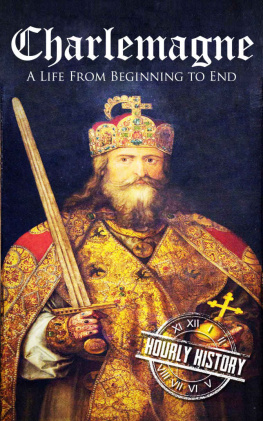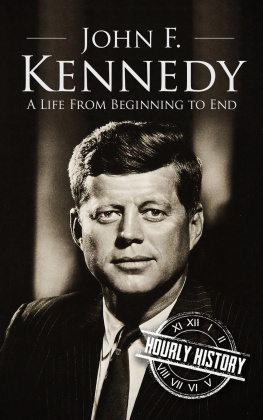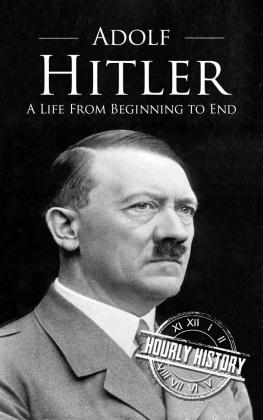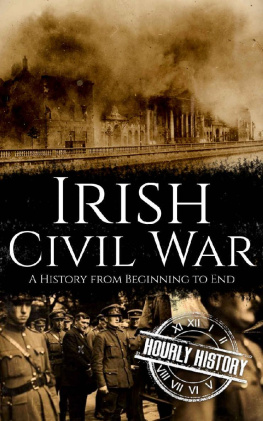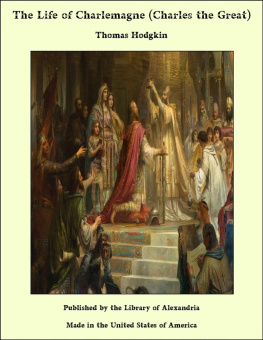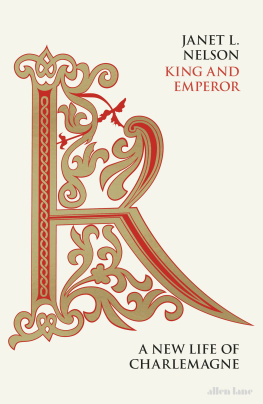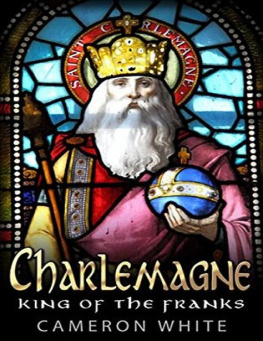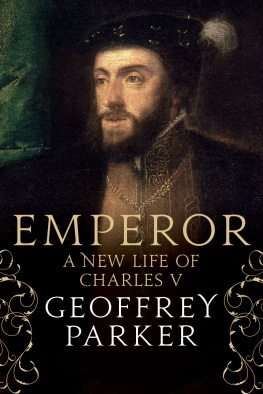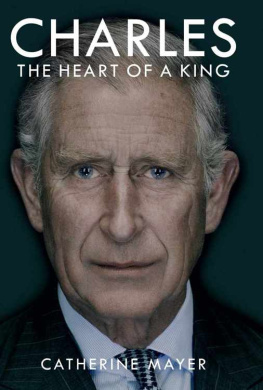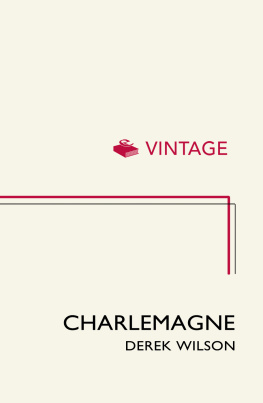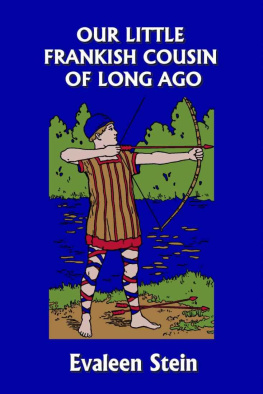CHARLEMAGNE
A Life From Beginning to End
Copyright 2016 by Hourly History Limited
All rights reserved.
Table of Contents
Introduction
Europe in the early Middle Ages was the equivalent of the American Wild West, where rules were relative to the region and the whims of the man who wielded the most power. It was a time when adjectives flourished as a form of nomenclature and geography was as good as a surname; when coupling a name with a personality trait Louis the Pious, among countless others, served as a perfectly adequate form of identification for men of consequence. These were the men who had taken hold of the sections of Europe that had been abandoned by Rome and, gradually, through the alchemy of war and piety, were turning it into a realm where the sacred church and the secular throne provided the political architecture of the land. However, standing out in the heritage of descriptive names for monarchs is Charles the Great, or Charlemagne, who was born into a powerful, ambitious family line, and continued his familys narrative until Western Europe itself was formed in his image.
Charles, the King of the Franks, was the first leader since the fall of the Roman Empire to rule over a united Western Europe, branding his legend and legacy over a geography that would today cover what is now Belgium, Luxembourg, France, the Netherlands, and western Germany. As devotion to one God replaced the pagan beliefs and practices of their forefathers, Charles goal was to unite all the Germanic people into a single Christian kingdom. Rome had been Christian at the time of its fall, but spiritual backsliding had taken place - until the time when monasteries moved into the regions, and faithful, unassuming monks gradually converted the native folk to Christian beliefs. However, Charlemagne perceived a purpose to Christian living apart from its spiritual benefits; his sense of order realized that people who lived by a uniform code of behavior served the nation better.
The habit of the times, when enemies were reluctant or unwilling to turn their backs on the traditions of their ancestors, was conversion by the sword; once leaders were converted, they were content to fight under the banner of Christ. Charles had no scruples about using force to convince his vanquished subjects that choosing to follow the Prince of Peace was preferable to the certain death that would result if they chose otherwise. Western Europe was his domain, and his adherence to the Christian faith meant that the creed which had traveled far from its Middle Eastern roots gained a firm foothold in Europe. Charles devotion to the faith meant that he was closely allied with the Popes of Rome, a union which would bring governments and the church into a partnership - not always harmonious - that would define a new power structure. But he came to the rescue of the Popes when they needed military might, and hes credited with saving the Papacy from its enemies.
Charles had a wider concern regarding the Church. Responding to what he deemed a clergy whose lack of learning compromised the understanding of the Bible, he initiated a process of education for priests by summoning Europes most revered scholar, Alcuin of York, to reform the training system. Alcuins efforts helped a revitalization of culture that is known as the Carolingian Renaissance.
Charles the Great reconfigured the map of Western Europe with his military conquests, restored Latin as the language of the educated, and bolstered the Papacy with his armies. He married often and fathered many children, some legitimate, some not; he lived long and, during his lifetime, his Empire flourished. But his heirs could not sustain his greatness - his unification of Western Europe did not last.
His legend, however, is eternal. He is such an integral figure in medieval history that, had he not been born, lived, and ruled, the destiny of Europe would have been altered. He is regarded not only as the father of Europe, because he unified the continent from the North Sea to the Mediterranean Sea for the first time since Rome fell, but also as the father of modern France and Germany. The world knows him as Charles the Great, but whether he is referred to as Carolus Magnus in Latin, Karl de Grosse in German, or Charlemagne in French, the man who is listed as Charles I for the ruling dynasties of Germany and France is acknowledged as deserving of the title of Charles the Great.
Many centuries have passed since Charlemagne dominated Europe. As Europe reacts to the exit of Great Britain from the European Union, its worth the effortto hearken back to a time when a single man forged his own European Union, also without the inclusion of the Englishand left a lasting mark on history.
Chapter One
Charles the Carolingian
Who should be King, he who has the title,
or he who has the power?
Pepin III
Following the fall of the Roman Empire, the continent of Europe seemed to be a barbaric collage of small, separate kingdoms, each ruled by regional leaders whose success depended upon maintaining secure borders, fighting off hostile invaders, and staying alive. The seamless tapestry of Rome had frayed after 476 CE, forcing the nascent countries to fend for themselves without the protection of the storied Roman legions. Survival does not necessarily allow for a cavalcade of great leaders, but there was one man who branded the Middle Ages with a legend that knew no competitors among the minor warlords. Those who tried to match themselves against him soon found themselves absorbed into the steadily expanding borders of the Kingdom of the Franks.
His name was Charles or Karl. He was born, perhaps in 742 AD, possibly in 747, in what is believed to be present-day Liege, although some historians credit Aachen as his birthplace. Charles did not invent the Carolingian form of leadership; he built upon the traditions which his father and grandfather initiated in a battered Europe, in which political skill and military sagacity had not been found in a leader since the days of the Caesars.
In the vacuum of empire, local leaders had to fill the vacancy of leadership. One of the early dynasties to do so was the Merovingians, regarded as the first royal house of the French, who lived in Francia. The name came from Merovech, who rose to significance around 450; his son, Childeric, ruled over the Salian Franks. He died in 482 and was succeeded by his son, Clovis I, who in 486 defeated a Roman army in Gaul, then continued his military conquests to create the first Kingdom of the Franks, regarded as the first French state. In 493, Clovis married Clotilda, the daughter of the Burgundian king, and converted to Christianity, laying the theological groundwork for what would eventually become a union with the future empire, that of the Roman Catholic Church.
The Merovingians were powerful and effective until the middle of the seventh century when their waning power collided with an up-and-coming dynasty, the Carolingians. But not all of the Carolingian success was of its own making; some of the Merovingian customs served to undermine the stability of their lands. One chief reason for this was the practice under Frankish inheritance of dividing a fathers lands among his sons. Land-hungry siblings often turned against one another, and fratricide was not unknown. When a new claimant sought the throne and was successful, the reward for those who had pledged their allegiance was to give them parcels of land. However, land was a finite resource; as time went on, there was nothing to distribute.
The Mayors of the Palace, the top position in the household, were the ones to whom the business of governing fell, particularly after 640 when the monarch was little more than a figurehead. Charles Martel, who became Mayor of the Palace in 715, was an experienced warrior who was far-sighted enough to realize that a strong leader needed a permanent cavalry force; his attentiveness to the techniques of war would be part of the heritage that his son and grandson would inherit and put to good use. Because Charles Martel was illegitimate, he was not originally considered a contender in the power struggle that resulted when his father, Pepin II died; Charles was not even mentioned in his fathers will. However, that would not be an impediment for a Carolingian.

